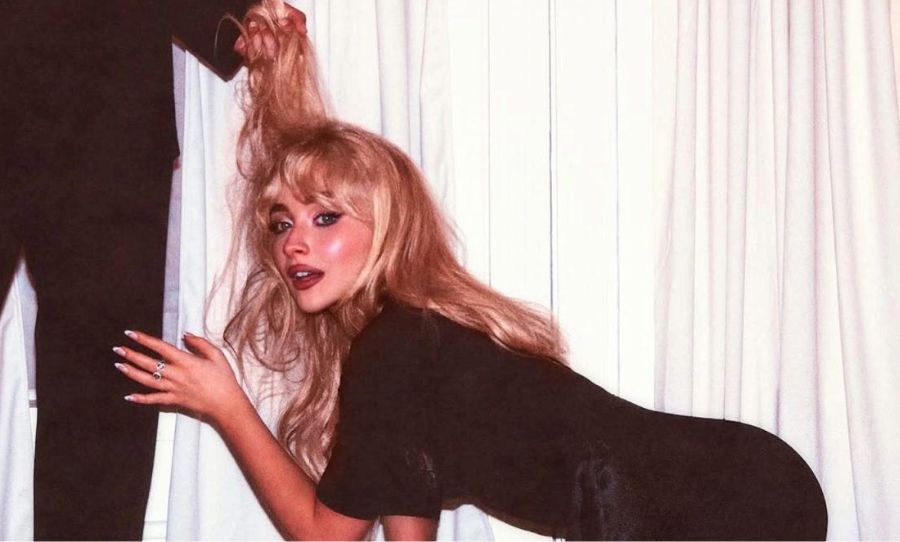You may have caught your Instagram timeline flooded with black and white selfies over the last week adorned with the hashtag #ChallangeAccepted.
The trend has seen all sorts of celebs online, from the Kardashians to Stranger Things‘ star Millie Bobby Brown, all nominating one another to repost themselves with a monochrome filter supporting women’s empowerment… or something like that?

Viral trend hashtag #challangeaccepted becomes another example of performative slacktivism as the movement’s origins of ongoing Turkish femicide get lost in a sea of black and white selfies.
Not unlike the #BlackoutTuesday black squares that were posted on Insta shortly after the murder of George Floyd, #ChallangeAccepted has too corrupted, and perhaps oversimplified, the meaning of the movement behind the hashtag.
The black and white selfies that have popped up all over mainstream Instagram are only the tip of the iceberg, and the whole women empowering women thing is only half the story.
Actually, the hashtag stems from the ongoing and largely underreported gendered violence in Turkey, whereby women are being sacrificed in so-called “honour killings”. The latest, which has propelled the story into Turkish headlines, has been the brutal murder of 27-year-old student Pinar Gültekin, who is said to have died at the hands of her ex-boyfriend.
Turkey, historically, has one of the world’s highest number of femicides or gender-motivated killings. Often, those who perpetrate this violence do not face harsh punishment. According to The Guardian, last year 474 women were murdered, mostly by partners and relatives. That number was the highest in a decade.
Currently, Turkish feminists are concerned about the president’s talk of abolishing the Istanbul Convention, which is a treaty from 2011 that grants legal protection for domestic and gender-based violence victims, ensuring the persecution of offenders.
august 13th will be the day of decision. please spread the word to support the women, queers and children of Turkey.#İstanbulSözleşmesiYaşatır#IstanbulConventionSaveLives https://t.co/hIeYiqO2a3
— a (@peacefuInight) August 5, 2020
Gültekin’s murder sparked protests across the country, with her death perceived as an indication of the ongoing need to uphold the convention. The protests then sparked a trend of posting black and white photos to Instagram, a gesture in solidarity with the pictures of these murdered women displayed in the black and white pages of the newspaper.
Sometimes the pictures were captioned with #ChallanageAccepted. They also used the hashtag #İstanbulSözleşmesiYaşatır, which translates to “Enforce the Istanbul Convention.”
Since then, the co-opting of the hashtag by Western celebrities has meant that the initial tragedy behind the hashtag – and the ongoing fight for the Turkish President to uphold the Istanbul Convention – has been drowned out by another, more indistinct message. This speaks to a larger issue of online slacktivism or performance activism.
When the Instagram world all decided to “blackout” in solidarity with the Black Lives Matter movement flooding the platform with plain black squares, there was widespread criticism that the movement became a trend rather than effective activism. Many felt that influencers and online personalities were doing it as an act of performance or symbolism, rather than out of true engagement with the real problem of systemic racism.
In the same vein, #ChallengeAccepted exhibits how widely adopted performed activism is becoming online. With many celebs unaware of the Turkish gender-based violence at the heart of the movement, they’ve instead moulded it into a broad and – to be honest – directionless one of female empowerment.
While Khloe Kardashian and Ivanka Trump are posting monochrome selfies, in Turkey, hundreds of thousands of tributes are being posted on social media in solidarity with the murdered student and other women like her, fighting to uphold legislation and literally ensure the livelihood of millions of Turkish women.
Kadınlar pek çok şehirde sokakta, meydanlarda#PınarGültekin#İstanbulSözleşmesiYaşatır pic.twitter.com/4TRHn8ADtO
— Filmmor (@Filmmor_) July 21, 2020
“Pınar Gültekin’s murderer is among us, at our side, on our bed, at the bus stop, a step behind us … They are not elsewhere, they don’t fall from the sky, they don’t come from space,” actor Meriç Aral tweeted on Tuesday. “This is why women’s murders, hate murders, are political.”



